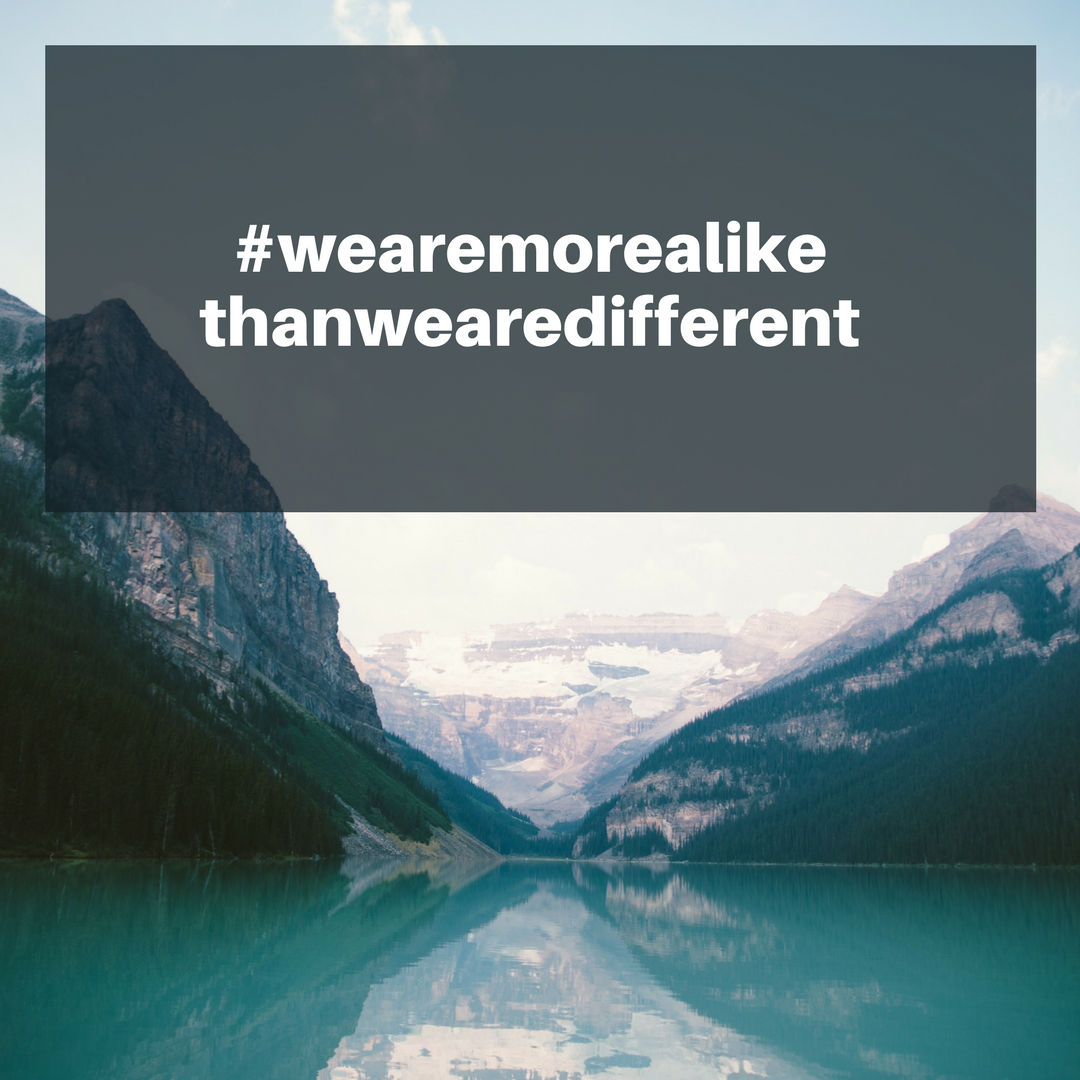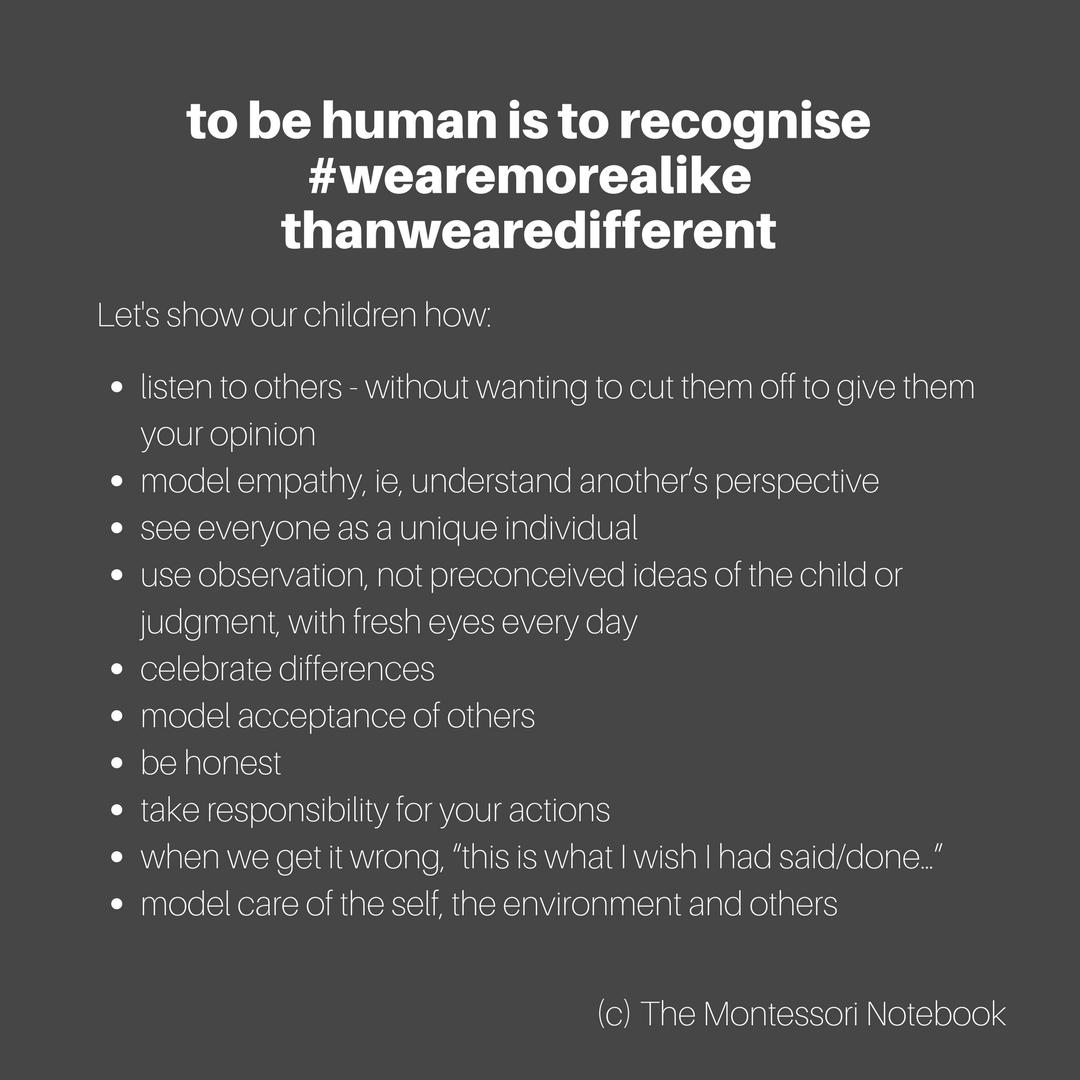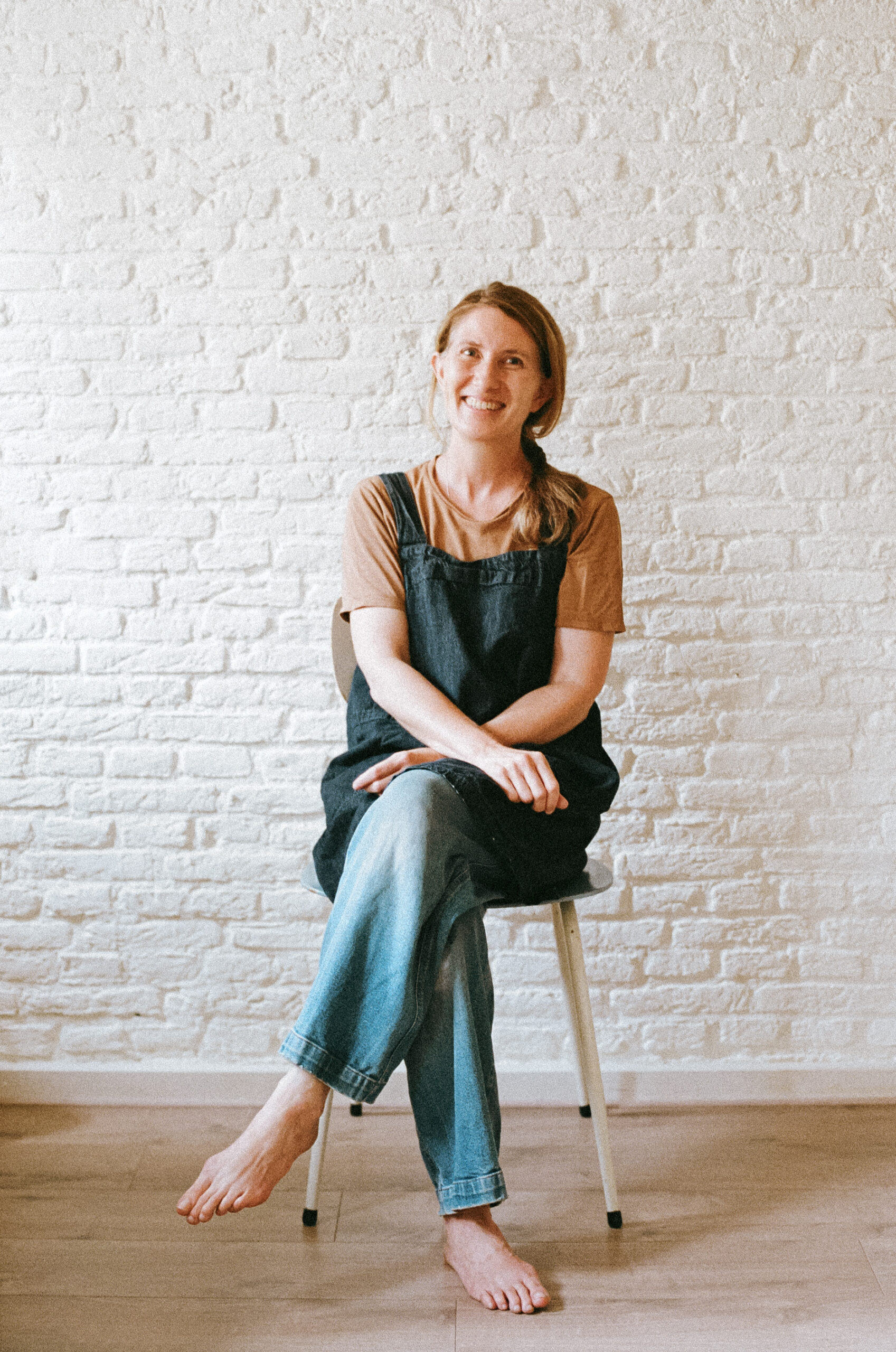How to be human – we are more alike than we are different
Are you also questioning what it is to be human with everything going on in the world around us right now? It almost feels as if there is no time in history when change has happened at such a rapid pace.
I think we are at a turning point. An exciting one.
Why?
Because I think we are starting to realise that “we are more alike than we are different”.

Does that ever happen to you when you start to see the connections everywhere?
You see I love a good intellectual conversation. Recently chatting with two dear friends, I was asking them their views on gender, raising children, masculinity, femininity, sexuality. You know. The whole gamut.
And my friend said something that I couldn’t stop thinking about. Her argument was that men and women are not that biologically different. As a structure, the male brain and female brain look the same (I checked this and it’s pretty accurate). I’m not sure I agree entirely but it’s what she said after that resonated with me. “We are more alike than we are different“.*
Boom. My head starts exploding. Things start falling into place. A lot of input and conversation I have had lately come back to this one point. Not just about gender. But about all humankind.
From reading Sapiens by Yuval Noah Harari (how homo sapiens is the only one of six human species to still inhabit earth); this video released a week ago from religious leaders to ask people to make friends across religions; this article I’m seeing all over my Facebook feed about gender-neutral schools in Stockholm where children were less likely to be influenced by gender stereotypes; reading The Hiding Place for my book club (where people of all faith in the Netherlands formed a secret network to protect Jews during German occupation and went to concentration camps alongside each other); watching my dear friend Debbie raise awareness that being a differently-wired child is not a deficit but a difference; watching Emmanuel Macron appoint equal numbers of women and men in his 18-person French cabinet; movements like #blacklivesmatter; listening to the ever-fascinating On Being; and even watching The Breakfast Club with my son (a film we love because teenagers from different backgrounds, class and character start to see each other as people). There’s many more but you get the idea…
I’ll admit that I am no expert in any of these issues.
But I am realising that I am human. You are human. Our neighbours are human. Our countries are full of humans. The earth is home to many many humans.
We are more alike than we are different.
Wouldn’t it be amazing to teach our child to embrace this?
Montessori teachers may be able to share some wisdom towards this. For over 100 years, we have been practising to see each child as an individual.
We spend over 250 hours of our training learning how to observe children. To see children without judgement. With fresh eyes every day. Without preconceived ideas of who they were yesterday, their age, their sex, their background, their ability.
Imagine a world where everyone is seen as an individual and without judgment.
We see the world through the child’s eyes. This teaches us empathy – an understanding of their perspective. And in turn, the child learns empathy for others too. I don’t think any child is trying to be naughty. They see the world through their lens. Every human too.
Imagine a world where we all have understanding of another’s perspective.
More than teaching independence, I believe Montessori teachers show a child how to take responsibility. As a Montessori parent for sure, I have supported my children as they have made it up to someone when they have wronged them, even when it’s been difficult. I have modelled honesty by not telling white lies (for example, not saying my kids are younger than they are to get a cheaper ticket). I take responsibility for my mistakes, make amends if needed, and learn for the next time.
Imagine a world where everyone takes responsibility for themselves.
I’m not sure if you have noticed but siblings tend to fight, and if not physically, then they argue, at least from time to time. I may be odd, but I don’t subscribe to the philosophy of “if you can’t say anything nice, don’t say it at all” (sorry mum!). I think differences of opinion make the world a fascinating place to live, as long as we do not hurt others for their views.
Imagine a world where everyone listens to others and even celebrates difference.
Montessori teachers are also passionate about care of self, others and the environment. From the youngest age we support the child in their discovery of the world about them. First we learn to look after ourselves (for me this took me well into my late 30s to learn!). We care for others by respecting their work, their views, and helping each other. It still warms my heart to watch several children rush over to help pick up the pieces when a younger child drops a box with many pieces in it. And Montessori children also learn to care for their environment – we grow and water plants, we put things away once we are finished, we learn to clean up after ourselves with small brooms, mops and hand mitts.
Imagine a world where we help each other, care for our environment and take care of ourselves.
This is my call to you. Be human. Support your child to be human. Acceptance is more than tolerance. Accept everyone.
No matter your age, your sex, your sexuality, your gender, your colour, your race, your nationality, your religion, your beliefs, your difference, your ability, your politics.
Yes. We are more alike than we are different.
If the whole of mankind is to be united into one brotherhood, all obstacles must be removed so that men, all over the surface of the globe, should be as children playing in a garden.”
– Dr Montessori

I leave you with wisdom from my dear Montessori friends Pamela Green and Andy Lulka:
“Humanity is a state of Being; in relationship with ourselves, others, and to nature…understanding to what is common among us, more than uncommon. And, also, to be grounded to stand and meet another, and to be seen…I also feel being Human is recognising that we are here to help each other…Can I hear from another who I may not agree with? Is my point of being right more important then connection? All of these questions and more come up for me.”
– Pamela Green
“We may not accept others openly deep inside our selves, but if we model the behaviour, we can start to shift that within ourselves, and allow room for our children to learn from this.”
– Andy Lulka
* I am not sure if my friend knew the origins of her words. This poem by Maya Angelou also includes them:
I note the obvious differences
in the human family.
Some of us are serious,
some thrive on comedy.
Some declare their lives are lived
as true profundity,
and others claim they really live
the real reality.
The variety of our skin tones
can confuse, bemuse, delight,
brown and pink and beige and purple,
tan and blue and white.
I’ve sailed upon the seven seas
and stopped in every land,
I’ve seen the wonders of the world
not yet one common man.
I know ten thousand women
called Jane and Mary Jane,
but I’ve not seen any two
who really were the same.
Mirror twins are different
although their features jibe,
and lovers think quite different thoughts
while lying side by side.
We love and lose in China,
we weep on England’s moors,
and laugh and moan in Guinea,
and thrive on Spanish shores.
We seek success in Finland,
are born and die in Maine.
In minor ways we differ,
in major we’re the same.
I note the obvious differences
between each sort and type,
but we are more alike, my friends,
than we are unalike.
We are more alike, my friends,
than we are unalike.
We are more alike, my friends,
than we are unalike.
We are more alike, my friends,
than we are unalike.

Simone Davies has more than 20 years’ experience as an AMI Montessori educator. Simone is the author of “The Montessori Toddler” and co-author of “The Montessori Baby” and “The Montessori Child” books, comprehensive guides to raising children in a Montessori way. She currently runs parent-child Montessori classes in Amsterdam at her school Jacaranda Tree Montessori. She also has a popular blog, instagram and podcast “The Montessori Notebook” and is mother to two young adults.